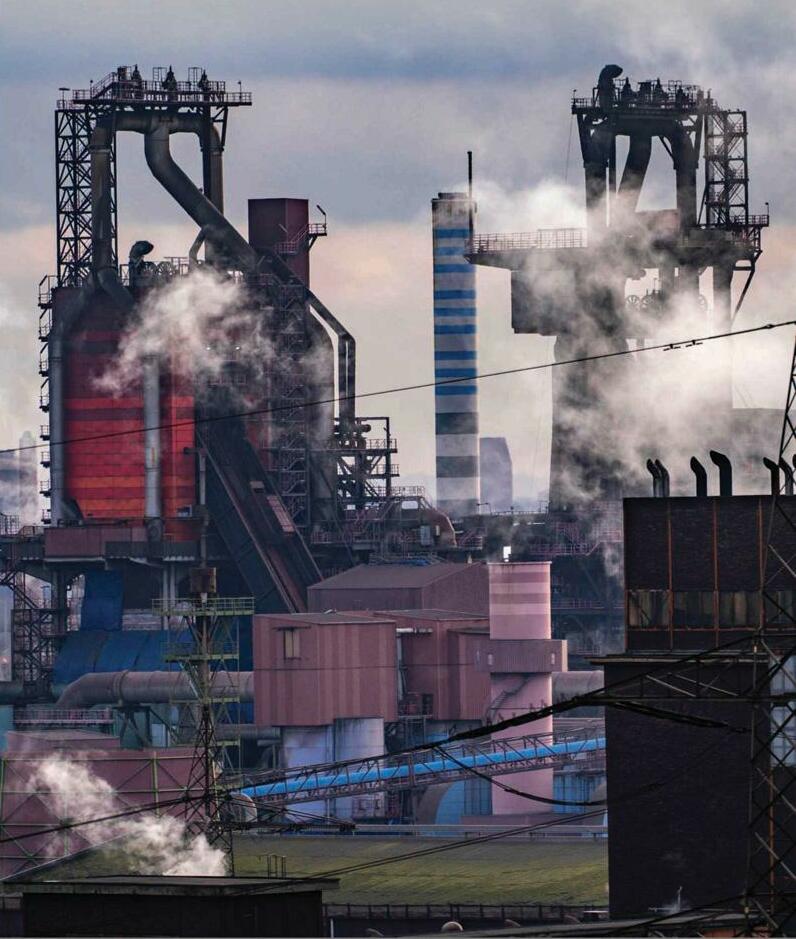Prøve GULL - Gratis
Energy companies shift blame to consumers
BBC Science Focus
|March 2025
Study finds top polluters weave 'eco-hero' narratives
-

Making changes to your everyday life can feel like you're playing a part in making the future more environmentally sustainable. But new data suggests that storytelling by energy organisations often places an unrealistic burden on consumers to be heroes in the climate change narrative, absolving the industry of its responsibility. Meanwhile, individuals' actions pale in comparison to the impact of big businesses.
“We need to be much more careful about how we talk about this,” says Dr Tom van Laer from the University of Sydney Business School in Australia, who authored the study published in the Journal of Public Policy & Marketing.
Globally, the energy sector is the largest contributor to carbon emissions. So van Laer wanted to check how accurately energy organisations in his country – responsible for almost half of Australia’s national emissions – frame their role in this.
His team pored over 300 different communication materials from 44 Australian energy organisations from energy providers to non-government policy regulators – between 2015 and 2022. Being a narratologist (an academic who studies storytelling and its influence) van Laer specifically analysed the materials' use of 'characters' and their role in the story.
THE ONE THING
The conclusion: most energy communications initially addressed what the organisations are doing to improve, "but then they very quickly say, 'But the consumer should really start taking this stuff seriously,'" van Laer says. "It's a nice little twist."
Denne historien er fra March 2025-utgaven av BBC Science Focus.
Abonner på Magzter GOLD for å få tilgang til tusenvis av kuraterte premiumhistorier og over 9000 magasiner og aviser.
Allerede abonnent? Logg på
FLERE HISTORIER FRA BBC Science Focus

BBC Science Focus
World's biggest cobweb is home to 100,000 spiders
Spiders don't normally create such large colonies, so there's no need to worry about finding one in your basement
1 min
February 2026

BBC Science Focus
A dementia vaccine could be gamechanging – and available already
Getting vaccinated against shingles could protect you from getting dementia, or slow the progression of the disease
1 mins
February 2026

BBC Science Focus
DATA IN SPACE
An unusual spacecraft reached orbit in November 2025, one that might herald the dawn of a new era.
7 mins
February 2026

BBC Science Focus
Climate change is already shrinking your salary
No matter where you live, a new study has found warmer temperatures are picking your pocket
4 mins
February 2026

BBC Science Focus
A MENTAL HEALTH GLOW-UP
Forget fine lines. Could Botox give you an unexpected mental health tweakment?
3 mins
February 2026
BBC Science Focus
Most people with high cholesterol gene don't know they have it
Standard testing struggles to detect the condition
1 mins
February 2026

BBC Science Focus
HOW CAN I BOOST MY IQ?
If you're serious about getting smarter, it's time to ditch the brain-training apps
4 mins
February 2026

BBC Science Focus
Humans are absolutely terrible at reading dogs' emotions
Think you can tell how our furry friends are feeling? Think again
1 mins
February 2026

BBC Science Focus
HOW TO TEACH AI RIGHT FROM WRONG
If we want to get good responses from AI, we may need to see what it does when we ask it to be evil
3 mins
February 2026

BBC Science Focus
What Australia's social media ban could really mean for under-16s
Many people think social media is bad for our kids. Australia is trying to prove it
5 mins
February 2026
Listen
Translate
Change font size

